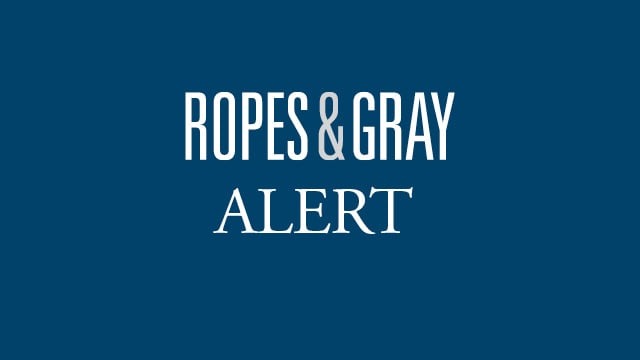Listen to the article
Justice and Health Departments Join Forces to Combat Healthcare Fraud
The U.S. Department of Justice and Department of Health and Human Services announced on July 2, 2025, the creation of a joint False Claims Act Working Group, marking a significant escalation in the federal government’s efforts to combat healthcare fraud.
The new initiative brings together senior leadership from HHS, the Centers for Medicare & Medicaid Services, HHS’s Office of Inspector General, and DOJ’s Civil Division, with participation from U.S. Attorneys’ Offices nationwide. This collaboration signals the Biden Administration’s continued focus on healthcare fraud as a key enforcement priority.
The Working Group has identified six priority enforcement areas for investigations and prosecutions under the False Claims Act: Medicare Advantage violations, improper drug and medical device pricing practices, barriers to patient access to care, illegal kickbacks, materially defective medical devices affecting patient safety, and manipulation of Electronic Health Record systems.
“This partnership represents a more coordinated approach to identifying and prosecuting healthcare fraud,” said a DOJ spokesperson. “By combining resources and expertise, we can better protect patients and taxpayers from fraudulent practices in the healthcare industry.”
Industry analysts note that most of these priorities align with existing enforcement trends. Medicare Advantage has been under intense scrutiny recently, with DOJ filing a major lawsuit against several MA plans and brokers. CMS has also announced significant changes to its Risk Adjustment Data Validation audit program, likely increasing the risk of investigations related to unsupported diagnosis codes submitted to the MA program.
Similarly, anti-kickback violations and investigations into drug and device pricing have been consistent focus areas for federal prosecutors in recent years. The renewed attention on EHR system manipulation picks up a thread from previous enforcement actions against EHR companies.
However, the Working Group’s focus on barriers to healthcare access, particularly network adequacy violations, represents a potential new frontier for FCA enforcement. These violations occur when insurance plans fail to provide enrollees with sufficient access to necessary healthcare providers. Companies offering Medicare Advantage, Medicaid, and Affordable Care Act plans should promptly review the adequacy of their provider networks.
The announcement also highlights two significant procedural developments. First, the Working Group will coordinate on the potential implementation of payment suspensions during investigations. Under existing regulations, CMS can withhold payments from providers when credible allegations of fraud exist, a powerful but historically underutilized tool that could severely impact companies’ cash flow during lengthy investigations.
Second, the Working Group mentioned coordination on decisions to seek dismissal of qui tam complaints when the government declines to intervene. This comes amid increased congressional scrutiny of such dismissals, with Senator Chuck Grassley reportedly urging a temporary halt to these dismissals pending a review of DOJ practices.
Health law experts believe the announcement will likely trigger an increase in whistleblower activity. “The government is essentially putting a spotlight on specific areas where it believes fraud is occurring,” said healthcare attorney Jane Smith. “This sends a clear signal to potential whistleblowers and their attorneys that FCA actions targeting these areas will be welcomed and potentially lucrative.”
Healthcare and life sciences companies, particularly those in the identified priority sectors, should prepare for increased scrutiny. Legal experts recommend implementing robust compliance programs, taking internal complaints seriously, and leveraging their own data analytics to identify potential compliance issues before they attract government attention.
The increased focus on healthcare fraud extends beyond U.S. borders. The United Kingdom’s “failure to prevent fraud” offense will take effect on September 1, 2025, creating additional liability risks for multinational life sciences and healthcare companies with UK operations.
As federal agencies enhance their coordination and technological capabilities, healthcare providers and related businesses face a more sophisticated enforcement landscape requiring heightened vigilance and proactive compliance measures.
Verify This Yourself
Use these professional tools to fact-check and investigate claims independently
Reverse Image Search
Check if this image has been used elsewhere or in different contexts
Ask Our AI About This Claim
Get instant answers with web-powered AI analysis
Related Fact-Checks
See what other fact-checkers have said about similar claims
Want More Verification Tools?
Access our full suite of professional disinformation monitoring and investigation tools




7 Comments
The DOJ and HHS are clearly making healthcare fraud a top priority. It will be important to follow how effective this coordinated effort is at rooting out violations of the False Claims Act.
Agreed, coordinated federal action is crucial to combat complex healthcare fraud schemes.
This new False Claims Act working group seems like a promising development, but the proof will be in how effectively they can pursue and prosecute offenders. Tackling issues like Medicare Advantage violations and EHR manipulation is no easy task.
This new working group sounds like a positive step in cracking down on fraud and abuse in the healthcare system. Curious to see how they prioritize and pursue the 6 key enforcement areas they’ve identified.
Curious to see how the DOJ and HHS will allocate resources and coordinate efforts across their agencies to tackle this healthcare fraud crackdown. The 6 priority areas cover a wide range of potential violations.
The healthcare industry has long struggled with fraud and abuse. Hopefully this new DOJ-HHS partnership can make meaningful progress in addressing key problem areas identified under the False Claims Act.
Interesting to see the DOJ and HHS teaming up to combat healthcare fraud through the False Claims Act. Tackling issues like improper drug pricing and kickbacks should help protect patients and taxpayers.